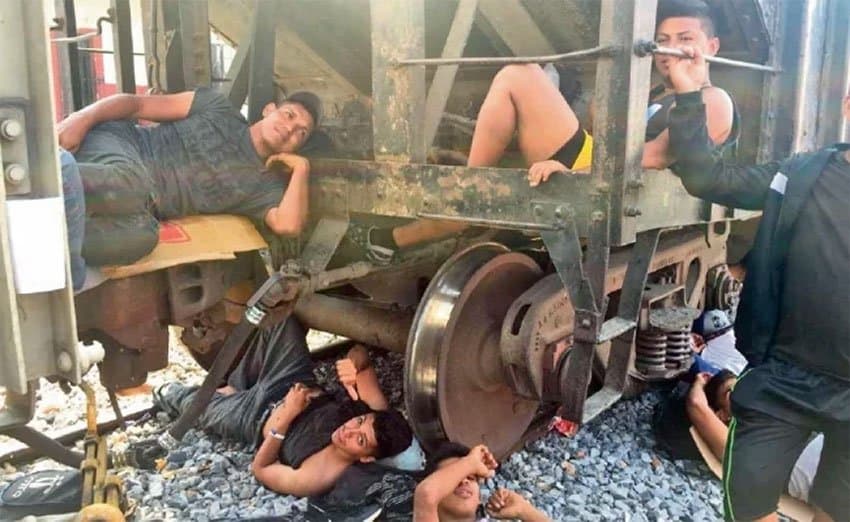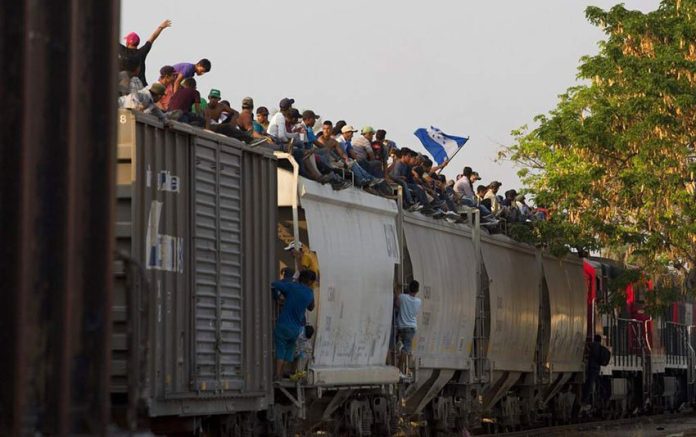Approximately 1,300 migrants fled a detention center in Tapachula, Chiapas, last night but 700 were later detained and returned to the facility.
The National Immigration Institute (INM) said in a statement that shortly after 8:00pm “there was a large-scale unauthorized departure of people housed at the Siglo XXI migration station.”
Most of the migrants who made the getaway were Cubans, the INM added, explaining that they currently make up the majority of people being held at the center.
The statement said there was no confrontation between INM personnel and the migrants because the former have no “containment equipment.”
The newspaper El Universal said the migrants escaped while many INM agents and Federal Police officers were not at the detention center because they were transferring another group of foreigners to the facility.
They fled because they expected to be deported, the newspaper said. Some of them were among 367 migrants who were detained Monday in Pijijiapan.
After leaving the immigration facility, some of the migrants fled on foot on a highway that leads to the center of Tapachula, while others boarded public transportation.
As of last night, approximately 600 people had not been located, the INM said.
Cubans migrants said that since yesterday morning there had been disputes at the overcrowded detention center over personal space and the limited number of mattresses.
Farther north in Chiapas, around 600 migrants left the town of Arriaga yesterday on a freight train that is known colloquially as “La Bestia” (The Beast). The group was expected to arrive today in Ixtepec, Oaxaca.
There are still around 5,000 migrants in Chiapas, mainly in the towns of Tonalá, Pijijiapan, Tapachula and Mapastepec.

It has become increasingly difficult for migrants to avoid Federal Police and IMN operations, which force them to register their entry into Mexico.
Sources familiar with Mexican immigration policy said last week that near-daily pressure from the United States government had resulted in the secretariats of the Interior (Segob) and Foreign Affairs (SRE) pushing the INM to adopt a tougher approach towards migrants.
Interior Secretary Olga Sánchez Cordero said this week that around 300,000 migrants traveled through Mexico en route to the United States in the first three months of this year.
The government issued about 13,000 humanitarian visas to migrants that entered Mexico at the southern border in January but authorities have largely discontinued the initiative.
Some migrants have been issued 20-day transit visas that allow them to continue their journey to the northern border but others have only received permission to remain in the south of the country.
Two large groups of migrants – 204 from Honduras and 148 from Cuba – were deported last week after they were located traveling through the country without having first regularized their immigration status.
Support for those traveling along the well-trodden migrant route in southern Mexico has declined considerably compared to late last year when municipal governments, church groups and residents routinely provided food and shelter.
“People don’t support us, they don’t even give us water. Help in the shelters has been reduced, we feed ourselves with mangos and other fruit we get during the journey,” said José Antonio, a Honduran migrant who intended to hop on La Bestia.
Despite the dangers of riding atop a freight train, José Antonio believes that it represents his only hope of leaving Chiapas to continue the journey towards the United States.
“It’s the best option amid the trap set by the government.”
Source: El Universal (sp)
